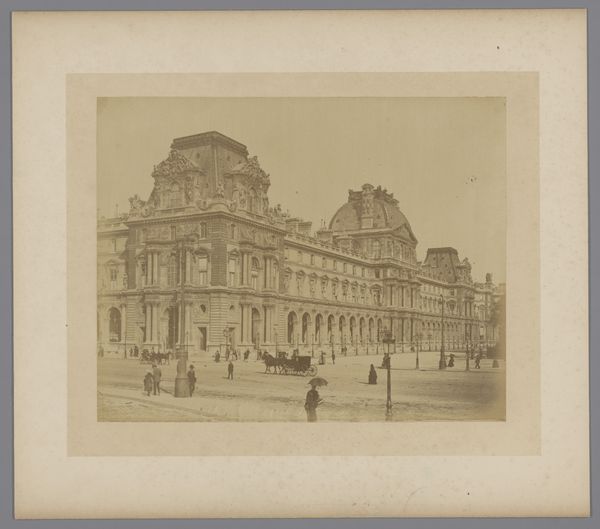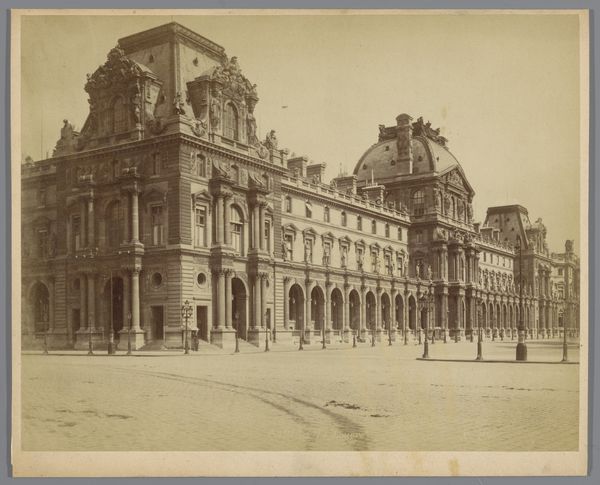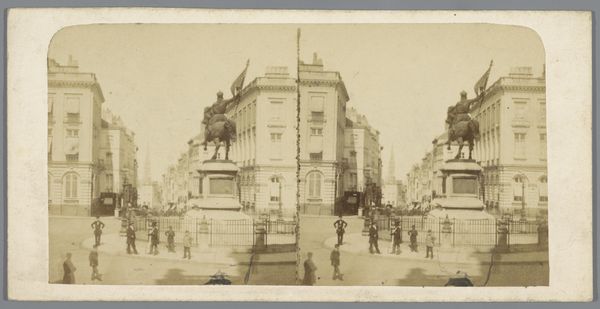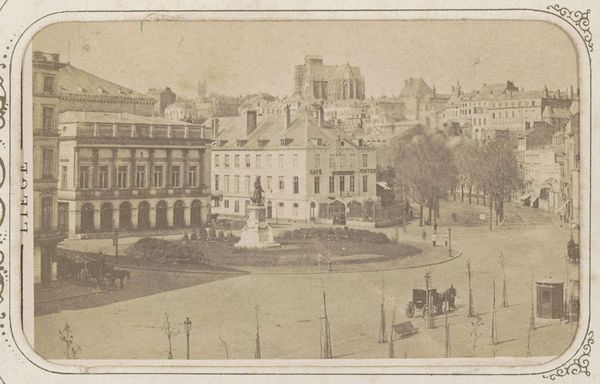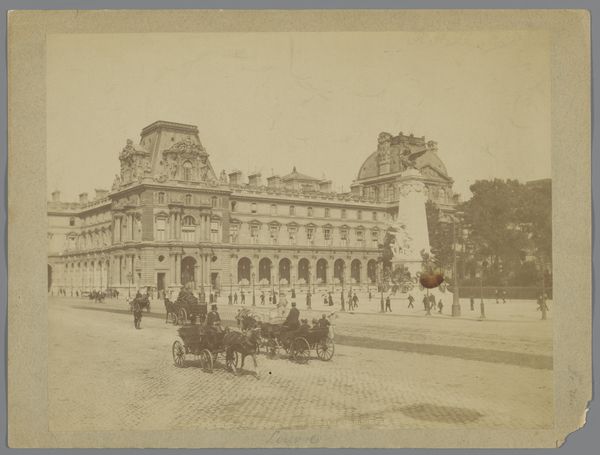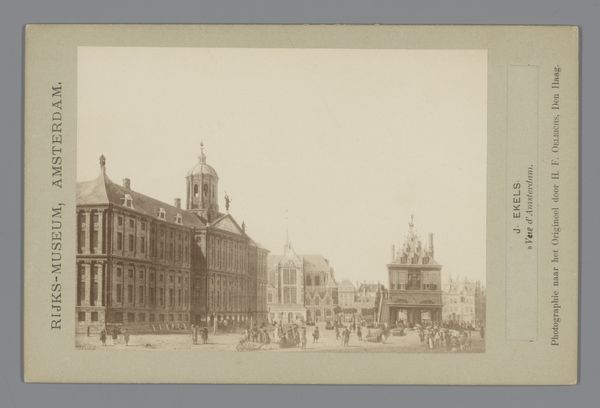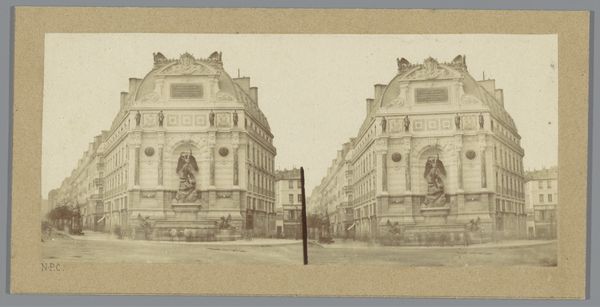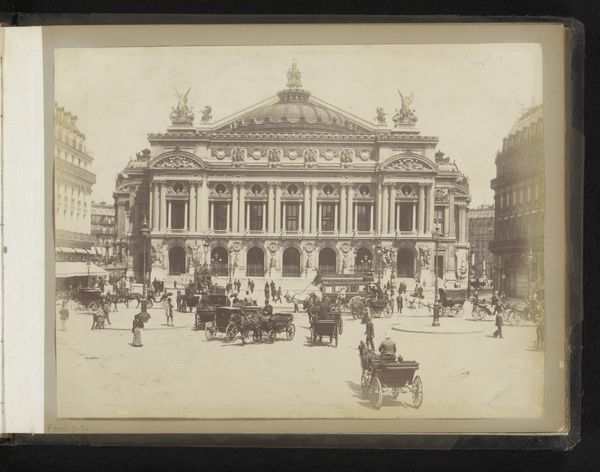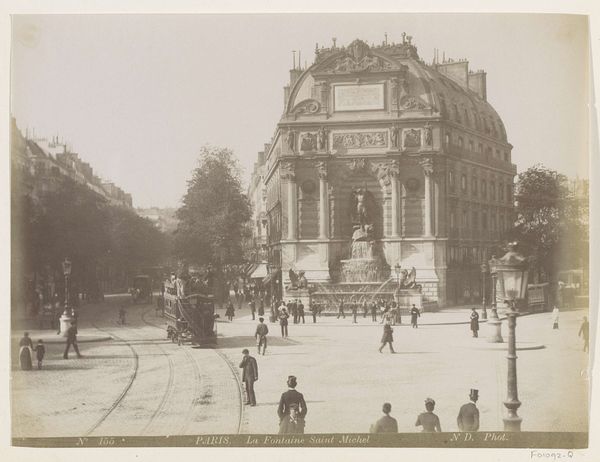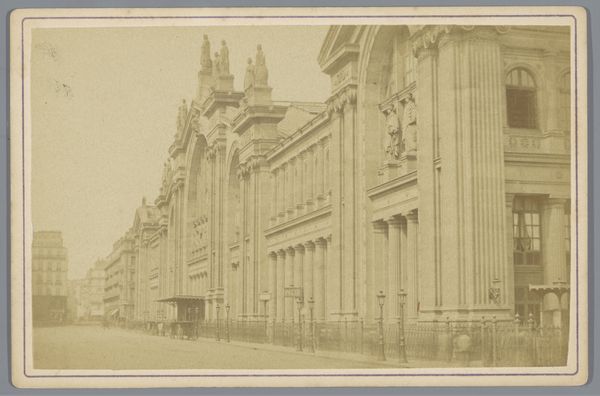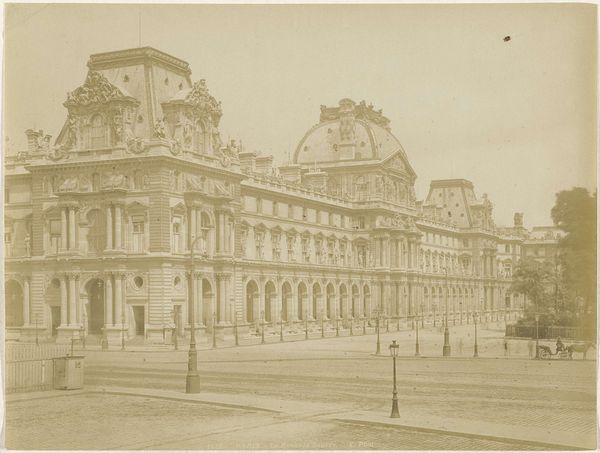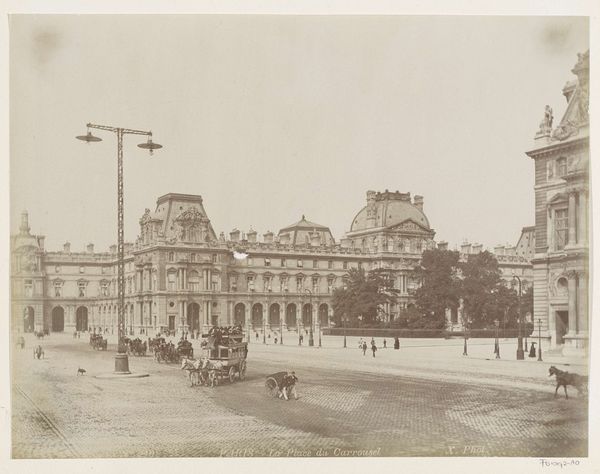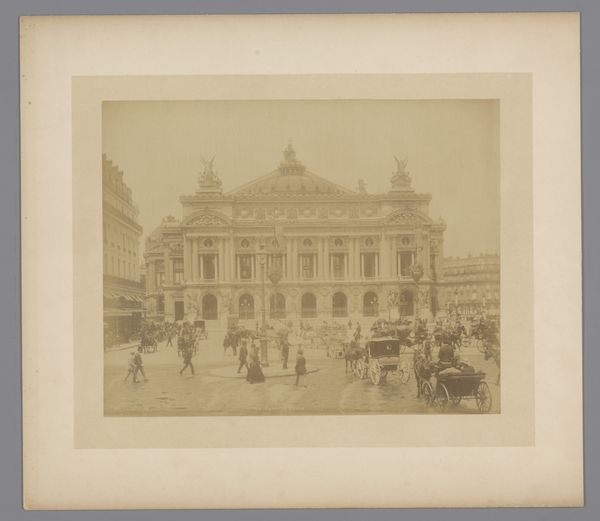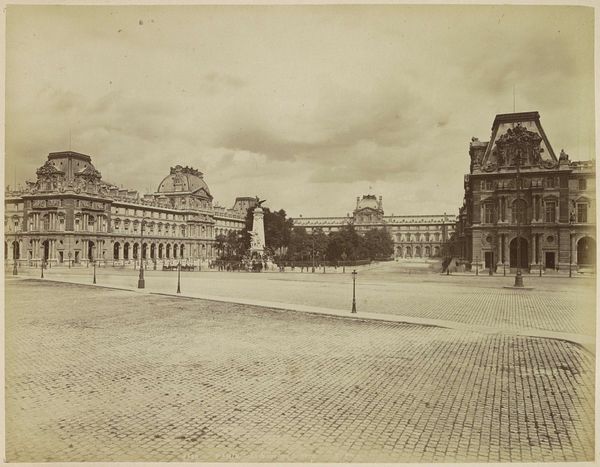
Exterieur van het Musée du Louvre te Parijs c. 1865 - 1875
0:00
0:00
Dimensions: height 98 mm, width 153 mm
Copyright: Rijks Museum: Open Domain
This albumen print of the exterior of the Louvre in Paris was made by Compagnie Photographique Debitte & Hervé at an unknown date. The Louvre, originally a palace, has a complex institutional history that reflects France's shifting social and political structures. Transformed into a museum during the French Revolution, it was intended as a space for public enlightenment, but also as a symbol of national pride. The photograph captures the grand architecture of the Louvre, emphasizing its imposing facade. The relatively empty plaza in front suggests a controlled public space, designed to impress upon visitors the power and authority of both the museum and the state. To truly understand this image, we must consider how the rise of photography influenced the perception and dissemination of art and architecture. Photographic archives, like those found in the Bibliothèque nationale de France, offer further insights into the role of institutions in shaping cultural memory. This photograph invites us to reflect on the social conditions that have shaped the Louvre into the institution we know today.
Comments
No comments
Be the first to comment and join the conversation on the ultimate creative platform.
